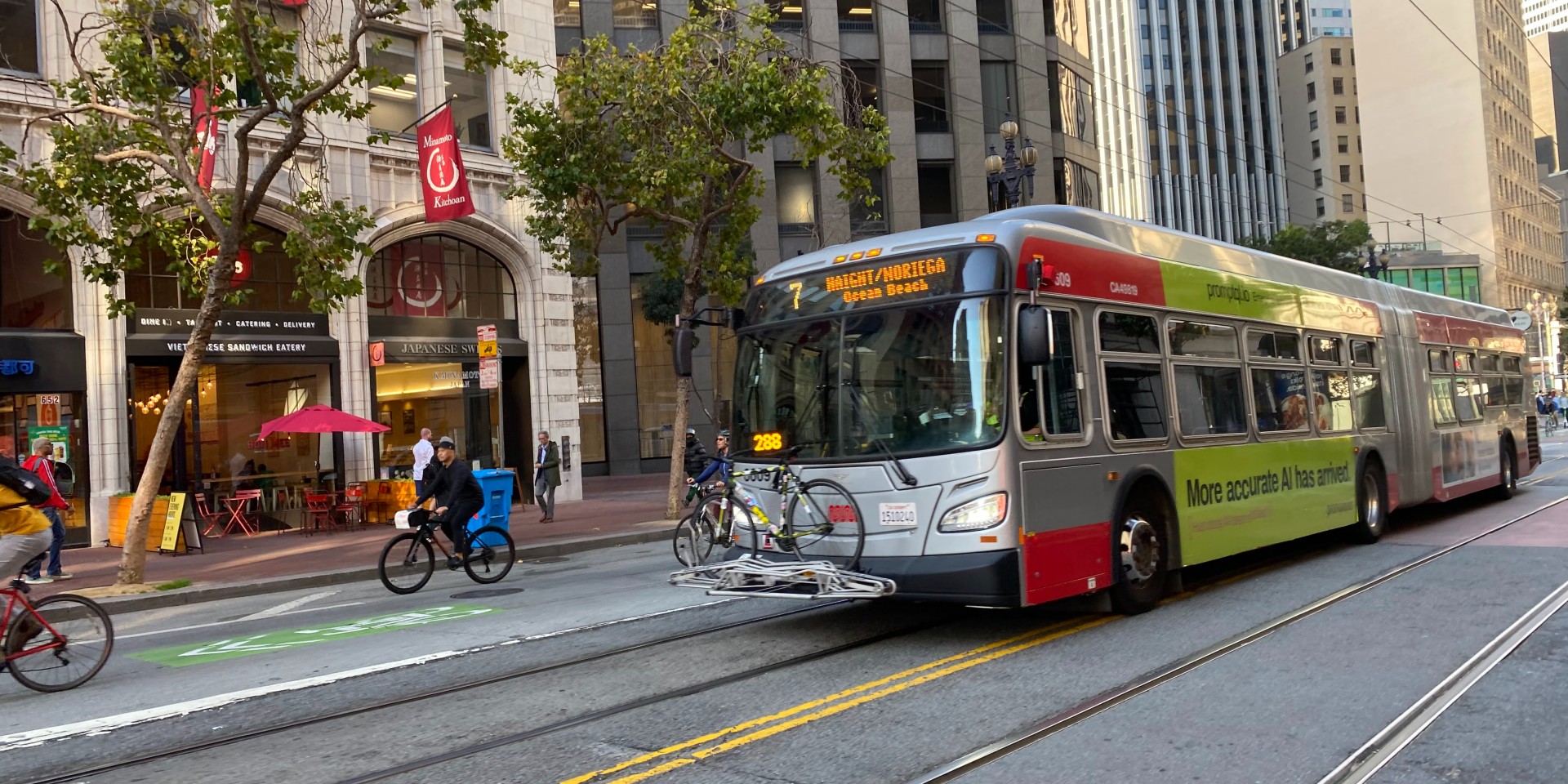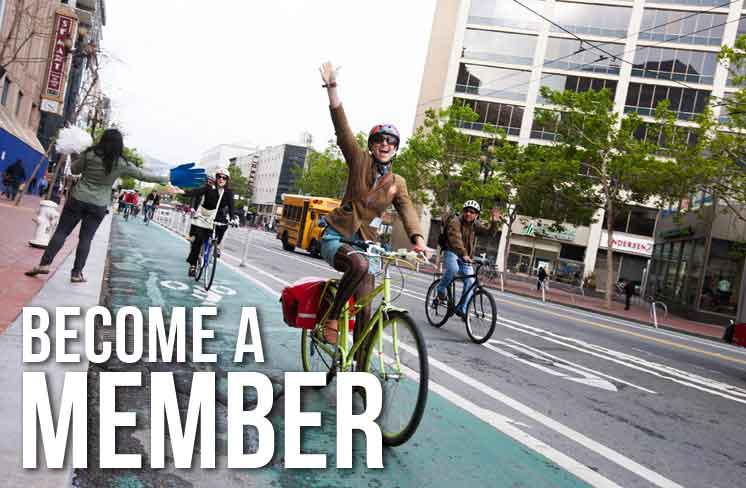The November 2026 election is slated to be critical for the future of for Bay Area transit. There will be two tax measures that will fund public transportation on the ballot and both need to pass to prevent major cuts to Bay Area transit services.
The San Francisco Municipal Transportation Agency (SFMTA), like other transit agencies across the Bay Area, is facing a significant budget deficit of up to $322 million by 2026, largely due to reduced performance of the city’s general fund and the expiration of federal pandemic aid.
Your San Francisco Bicycle Coalition is already working in local and regional coalitions to ensure that both of these measures will pass and that we will have well-funded public transportation in the future. In the event one or both of these transit measures fails, we could see major cuts to Muni, BART and other service providers. This would ultimately lead to an estimated 10,000 additional private vehicles congesting our roads daily, emitting pollution, causing traffic, and unsafe street conditions.
The first ballot measure is a Bay Area regional sales tax.
The details of the regional measure are determined by State Senator Scott Weiner’s legislation SB 63. The bill allows the measure to be placed on the ballot via a citizen’s initiative of signature collection. SB 63 includes several oversight and accountability provisions to ensure that revenue is being used responsibly.
If passed, the measure would create a 14-year regional sales tax that would generate $980 million annually in transit funding for all five Bay Area counties. This would be a half-cent sales tax in Santa Clara, San Mateo, Contra Costa, and Alameda counties, and a one-cent sales tax in San Francisco. This funding will prevent major cuts to transit services for BART, Muni, AC Transit, SF Bay Ferry, Caltrain, Santa Clara VTA, SamTrans, and some smaller transit agencies.
SFBike is working in a coalition led by Seamless Bay Area and SPUR to collaborate on public education and recruiting volunteers. We will need volunteers to collect signatures to get both ballot measures on the ballot and for other miscellaneous tasks. Sign up for updates on the campaign and how you can get involved.
The second ballot measure is a San Francisco variable parcel tax.
This variable parcel tax is still taking shape. The Mayor’s office, SFMTA, and many advocates are working tirelessly to design the best variable tax structure that will provide the funding we need while also being equitable and likely to be approved by voters. So far, the Mayor’s suggestions for the variable tax structure are not sufficient and don’t live up to San Francisco’s transit-first policy.
We are part of the Muni Now, Muni Forever Coalition that is working to ensure the local measure is equitable and will sustain Muni far into the future. In order to achieve that outcome the measure must include these four principles:
1. Generates enough revenue to grow current service by 10%.
2. Is structured fairly, with a variable rate so that smaller properties pay less and larger properties pay more.
3. Does not create any new cost passthroughs to tenants.
4. Scales with inflation and rising costs so the money from this measure will keep pace with rising costs and enable continued service delivery well into the future.
Now is the time to influence Mayor Lurie on the details of the variable parcel tax. Send an email to the Mayor to implore him to include Muni Now, Muni Forever’s four principles in the measure.


